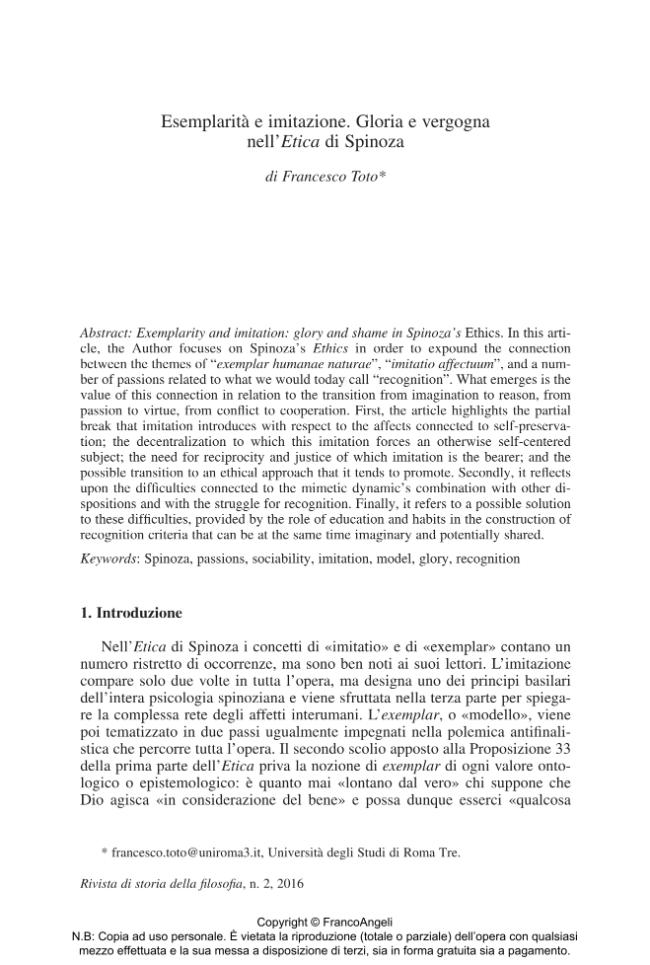Esemplarità e imitazione : gloria e vergogna nell'Etica di Spinoza
221-242 p.
In this article, the Author focuses on Spinoza's Ethics in order to expound the connection between the themes of "exemplar humanae naturae", "imitatio affectuum", and a number of passions related to what we would today call "recognition". What emerges is the value of this connection in relation to the transition from imagination to reason, from passion to virtue, from conflict to cooperation. First, the article highlights the partial break that imitation introduces with respect to the affects connected to self-preservation; the decentralization to which this imitation forces an otherwise self-centered subject; the need for reciprocity and justice of which imitation is the bearer; and the possible transition to an ethical approach that it tends to promote. Secondly, it reflects upon the difficulties connected to the mimetic dynamic's combination with other dispositions and with the struggle for recognition. Finally, it refers to a possible solution to these difficulties, provided by the role of education and h
abits in the construction of recognition criteria that can be at the same time imaginary and potentially shared.
Forma parte de
Rivista di storia della filosofia : LXXI, 2, 2016-
Artículos del mismo número (disponibles individualmente)
-
Información
Código DOI: 10.3280/SF2016-002003
ISSN: 1972-5558
KEYWORDS
- Spinoza, passions, sociability, imitation, model, glory, recognition



